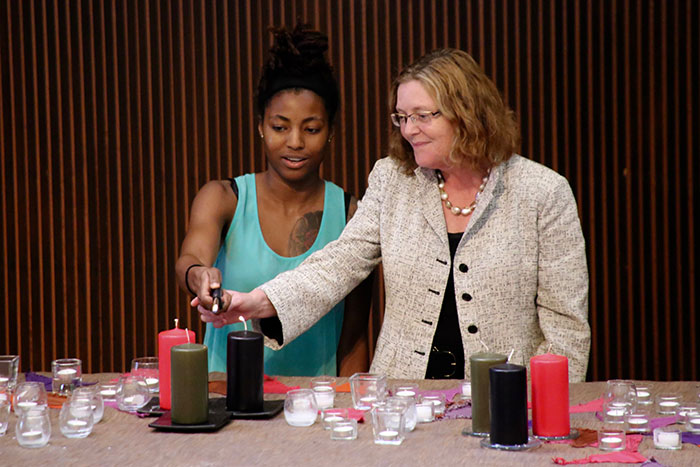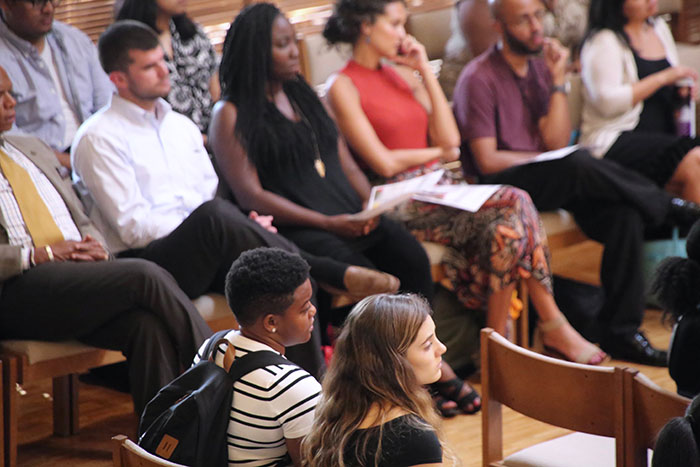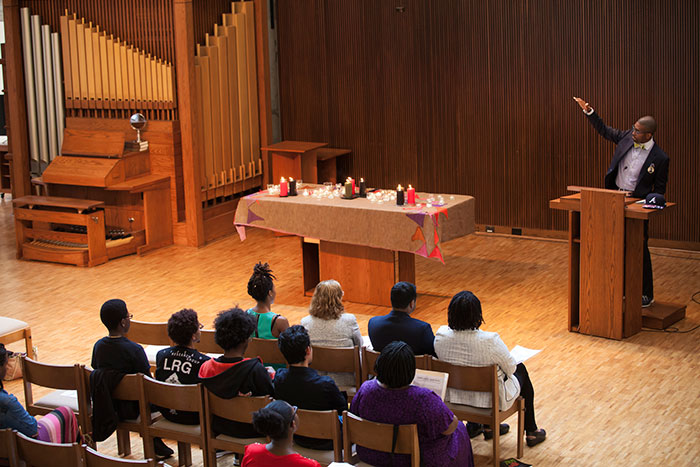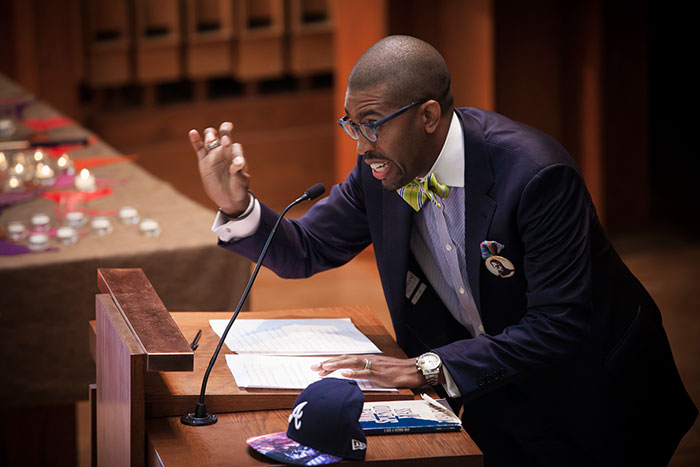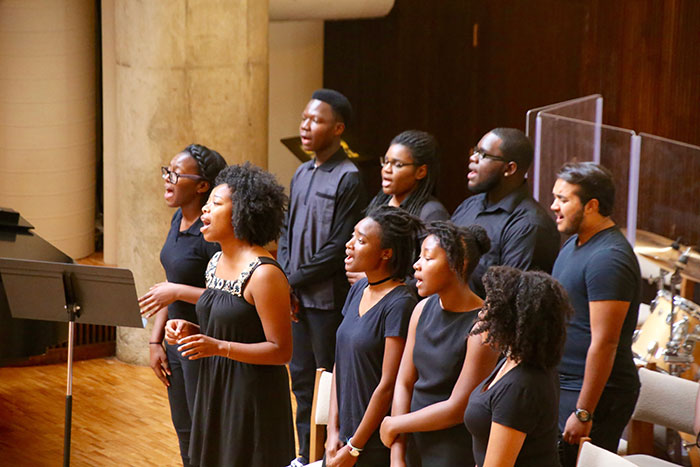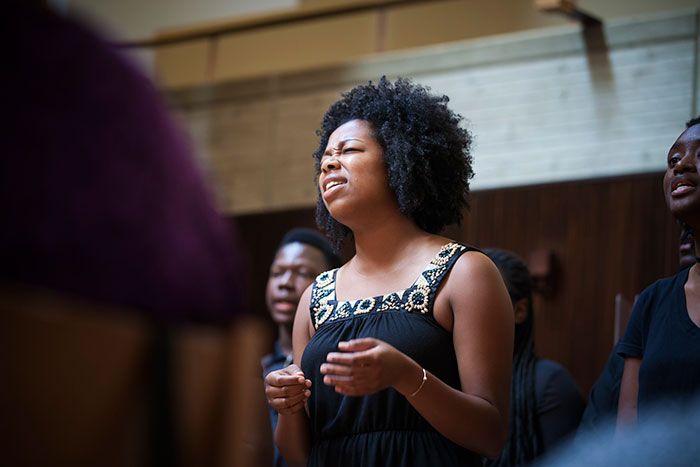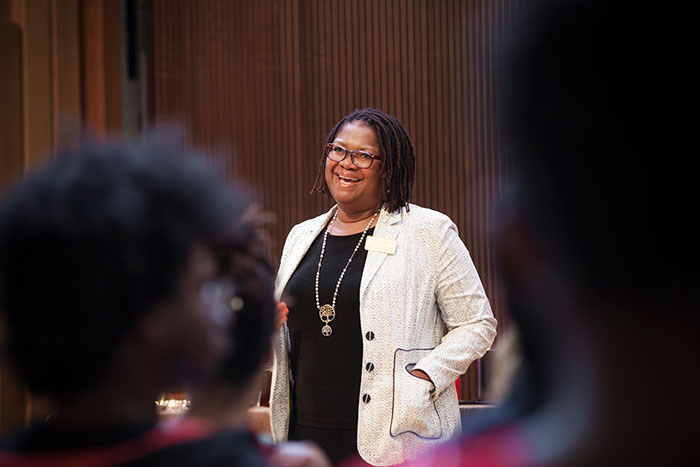With song and spoken word, personal stories and ritual, members of the Emory community gathered at Cannon Chapel on Thursday to reaffirm their commitment to the pursuit of justice and peace.
In light of ongoing violence against black Americans, the program “Know Justice. Know Peace: Lifting Our Voices for Black Lives” created an opportunity for students, faculty and staff to come together to reflect upon and honor lives lost.
The Rev. Bridgette Young Ross, dean of the chapel and spiritual life, opened the vigil by inviting participants to “call upon the spirit of the ancestors” as she sang the spiritual “Ain’t Gonna Let Nobody Turn Me Round.”
Young Ross reminded participants that at one time, sanctuaries all over the country had been used as places for people to organize for the cause of justice.
“And so we gather here today, in this sanctuary on this University campus — where so many students during that time organized as well — knowing that this gathering is just one of the many actions we are taking as a community to stand for justice and remember the many lives that have been taken,” she said.
Speaking out for justice
In welcoming the crowd, Ajay Nair, senior vice president and dean of Campus Life, drew upon the work of poet Emmanuel Ortiz in asking for a moment of silence for “all the black lives whose shoulders we stand on here at Emory,” as well as black lives lost to violence, both recently and throughout history.
“Here is your silence,” Nair concluded, reading from an adaptation of Ortiz' poem, "Moment of Silence." “Take it, but take it all. Let your silence begin at the beginning of crime. And we tonight, we will keep right on singing for our dead.”
President Claire E. Sterk and Emory student Jamani Montague 16OX 18C lit a series of candles as they read names of black lives lost to violence “in the name of injustice” throughout history.
Cynthia Whitehead-Laboo, associate director of clinical services for Emory’s Counseling and Psychological Services, acknowledged the impact oppression, racism and marginalization can have on mental health and well-being.
“When tragedy occurs that impacts your sense of safety, we are here for you,” said Whitehead-Laboo, noting "as mental health professionals, we are committed to honoring and affirming the unique intersecting aspects of your identities.”
Students Rubén Díaz Vásquez 19C, Marshall Crayton 17C, Emir Brown 19C and Jasmine Ray 19C presented original spoken-word performances.
Rev. Greg Ellison, associate professor of pastoral care and counseling at Candler School of Theology, concluded the gathering with a rousing address.
Drawing upon a modern-day parable, Ellison compared the ongoing civil rights struggle to the growth of a fruit tree. Though at times a tree may not blossom or grow fast, never doubt that “you are growing a movement, you are doing fruit tree work,” he said. “Trees teach us fortitude for the long arc of activism.”
In closing, Young Ross reminded the crowd that true peace is not the absence of conflict or tension, but the presence of justice.
“Go forth as speakers for justice,” she said. “As those who will stand in the front of the line for those who’ve been pushed way back.”


